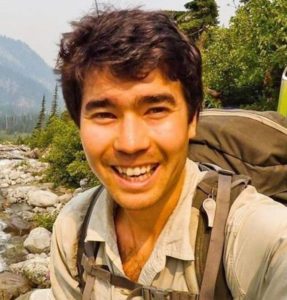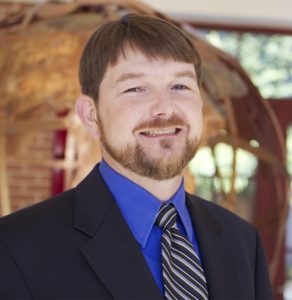Courageous martyr, colonial aggressor, neither or both? The recent death of John Allen Chau, a 26-year-old American missionary killed while trying to preach the gospel to a remote tribe in India, has ignited a debate about the wisdom of – or even the need for – evangelizing indigenous peoples ignorant of or hostile to Christianity.
“The Sentinelese have shown again and again that they want to be left alone, and their wishes should be respected,” said Stephen Corry, director of Survivor International, a global movement that champions tribal peoples’ rights. “The British colonial occupation of the Andaman Islands decimated the tribes living there, wiping out thousands of tribespeople, and only a fraction of the original population now survive. So the Sentinelese fear of outsiders is very understandable.”

John Allen Chau
British journalist Janet Street-Porter called it “another example of two of the worst kinds of environmental pollution: aggressive pushing of faith to another culture and the introduction of ‘gifts’ which undermine their way of life.”
“John Chau claimed he wanted to introduce Christ to the Sentinelese – but why would their own culture not include a deity, a belief in the afterlife or some sense of fulfilling spirituality?” she wrote in The Independent. “Why would his evangelical creed be superior or necessary?”
Ryr Spaeth, features editor for the New Republic, described Chau as “a very contemporary kind of villain: wholly oblivious of his ingrained prejudices, a menace in his smiling condescension” set on penetrating a space he viewed as possibly “Satan’s last stronghold.”
“A few fellow zealots have described him as a ‘martyr,’ but scholars and pundits have recognized, tacitly or otherwise, that he was asking for something awful to happen,” Spaeth wrote.
Steven Porter, coordinator of global missions for the Cooperative Baptist Fellowship in Decatur, Georgia, said Christians mourn the loss of any life — including Chau’s – but efforts to brand his death a martyrdom or his travels as missionary service do a disservice to countless people who make serious and informed sacrifices to serve others in Jesus’ name.
“Those sacrifices include the painstaking work of learning new languages and cultures, acquiring skills in a variety of trades, and earning a theological education,” Porter said Nov. 29. “All of these efforts create the conditions necessary for true friendship across cultures and, ultimately, faithful witness to the God of all cultures.”
Chau, an Oral Roberts University graduate and self-described adventurer, looked up to role models including David Livingstone, the 19th century pioneer Christian missionary and explorer immortalized by his meeting in 1871 with journalist Henry Morton Stanley with the famous quote, “Dr. Livingstone, I presume?”
His ill-fated mission is being compared to the well-known story of Jim Elliot, a Christian missionary to Ecuador killed by Huaroni Indians in 1956. Elliot and four others who died with him became instantly known as martyrs after Life Magazine published a 10-page article on their mission and death.
“When the missionaries arrived, the Africans had the land and the missionaries had the Bible. They taught us how to pray with our eyes closed. When we opened them, they had the land and we had the Bible.”
The story sparked an interest in Christian missions among young people at the time perpetuated by Through Gates of Splendor, a book about her husband written by Elliot’s widow and retold through the perspective of another team member in the 2005 docudrama, End of the Spear.
Amy Butler, pastor of Riverside Church in New York City, said she would have believed well into her teenage years that someone like Chau was making “the ultimate commitment” and “displaying kindness” toward the folks on the remote island by trying to rescue their souls from hell.
“I now understand how American exceptionalism, colonization, privilege and just plain arrogance have birthed a ‘Christianity’ that is so far from the mandate of Jesus,” Butler wrote on Facebook, adding her wish that Chau “had had the opportunity to experience a Christian faith less tinged by those influences.”
Thomas Kidd, distinguished professor of history at Baylor University, said the difference between public reaction to Elliot’s and Chau’s deaths show how core evangelical convictions including the need for salvation through Christ and mandate to share one’s faith “are becoming increasingly incomprehensible to a post-Christian American culture.”
“A comprehending observer would realize that, however ill-considered Chau’s plan was, it made sense to him given evangelical assumptions about salvation and eternity,” Kidd wrote for the Gospel Coalition.
“’Leave North Sentinel Island alone’ makes perfect sense if what you believe about God has nothing to do with your eternal fate,” Kidd said. “If there is no afterlife (or if we can’t know anything about the afterlife) then what Chau was doing was the height of foolishness.”
Unfundamentalist, a website and Facebook group focused “on following Jesus’ commandments to love God and neighbor,” said what Chau tried to do was harmful and foolish.
“It was not God’s will that he thought he was following; it was his own,” a group post said Nov. 22. “Too often this is true of religious people and this is the lesson: Do not mistake your own desires and your compulsion for God’s. Claiming martyrdom under circumstances like this is disrespectful to true martyrs.”
John Fea, a professor of American history at Messiah College and author of the recently released book Believe Me: The Evangelical Road to Donald Trump, said Chau’s trip to North Sentinel Island “seems to have combined evangelical individualism with the adventure/adrenaline culture popular among American millennials today.”
Along the way, Fea said, Chau “seems to have ignored the wisdom of the church and the voices of other Christians in his life.”
Justin Graves, a friend of Chau’s from the Canada Institute of Linguistics, defended Chau’s motives but agreed that he made a mistake.
“What he did here was not wise,” Graves told Faithwire. “As I mourn for him, I question the theological assumptions and missiological methods present within much of the world today that may have influenced his decision.”
“I respected John and his passion,” Graves concluded, “but this cannot be a role model to emulate, but a lesson to learn from.”
Secular critics view Chau as a throwback to the colonial era of the 19th and early 20th century, when American and European missionaries sent to evangelize in Africa or Asia often resulted in leading people away from their indigenous spiritual practices and facilitating colonial regimes in takeover of their land.
“When the missionaries arrived, the Africans had the land and the missionaries had the Bible,” Kenya’s first post-colonial president Jomo Kenyatta famously described the activities of British missionaries in his country. “They taught us how to pray with our eyes closed. When we opened them, they had the land and we had the Bible.”
Author Teju Cole wrote in 2012 about the way Africa “serves as a backdrop for white fantasies of conquest and heroism.”
“From the colonial project to Out of Africa to The Constant Gardener and Kony 2012, Africa has provided a space onto which white egos can conveniently be projected,” said Cole, who was born in the United States to Nigerian parents and raised in Africa.
“It is a liberated space in which the usual rules do not apply: a nobody from America or Europe can go to Africa and become a godlike savior or, at the very least, have his or her emotional needs satisfied,” said Cole, the photography critic for the New York Times Magazine and Gore Vidal Professor of the Practice of Creative Writing at Harvard. “Many have done it under the banner of ‘making a difference.’”

Steven Porter
Blogger Cassidy McGillicuddy, who was raised Catholic and embraced Pentecostalism during her teenage years before de-converting in college, said Chau represents a form of “toxic” Christianity that seeks to exercise control over weaker people with or without their consent.
“For many years, scholars have examined the idea of Christian missionary efforts as a colonial power-grab,” she elaborated on Patheos. “No matter how sincere a would-be soulwinner might be, that person cannot escape these implications for power. If the soulwinner really felt that sincere, then surely they wouldn’t mind asking permission before pushing themselves on others. That would certainly improve the receptiveness of their audience!”
The CBF’s Porter, however, said it is a mistake to overreact to failings of an earlier age.
“Historians have documented that the modern missionary movement preserved indigenous cultures from eradication at the hands of Western imperialism, most notably through Bible translation,” Porter said. “Likewise, political scientists have discovered a direct connection between presence of democratic cultures in the global South and the work of evangelical Protestant missionaries whose high view of the human person and congregational polity planted seeds of democracy and human rights.”
“Certainly, we must learn all we can from the missteps of Christian mission in the past to avoid them in the future, but let’s not fail to recognize the concrete contributions to human flourishing Christian missionaries made,” Porter said. “For those who believe human flourishing ultimately depends on communion with the Creator, Redeemer and Sustainer of all things — the triune God — then bearing witness is not an option for some but a common vocation for all.”
For his part, Chau seemed to realize what he was doing was dangerous but counted it worth the risk.
“This is not a pointless thing,” Chau wrote in his final letter to his parents. “The eternal lives of this tribe is at hand and I can’t wait to see them around the throne of God worshipping in their own language as Revelation 7:9-10 states.”
